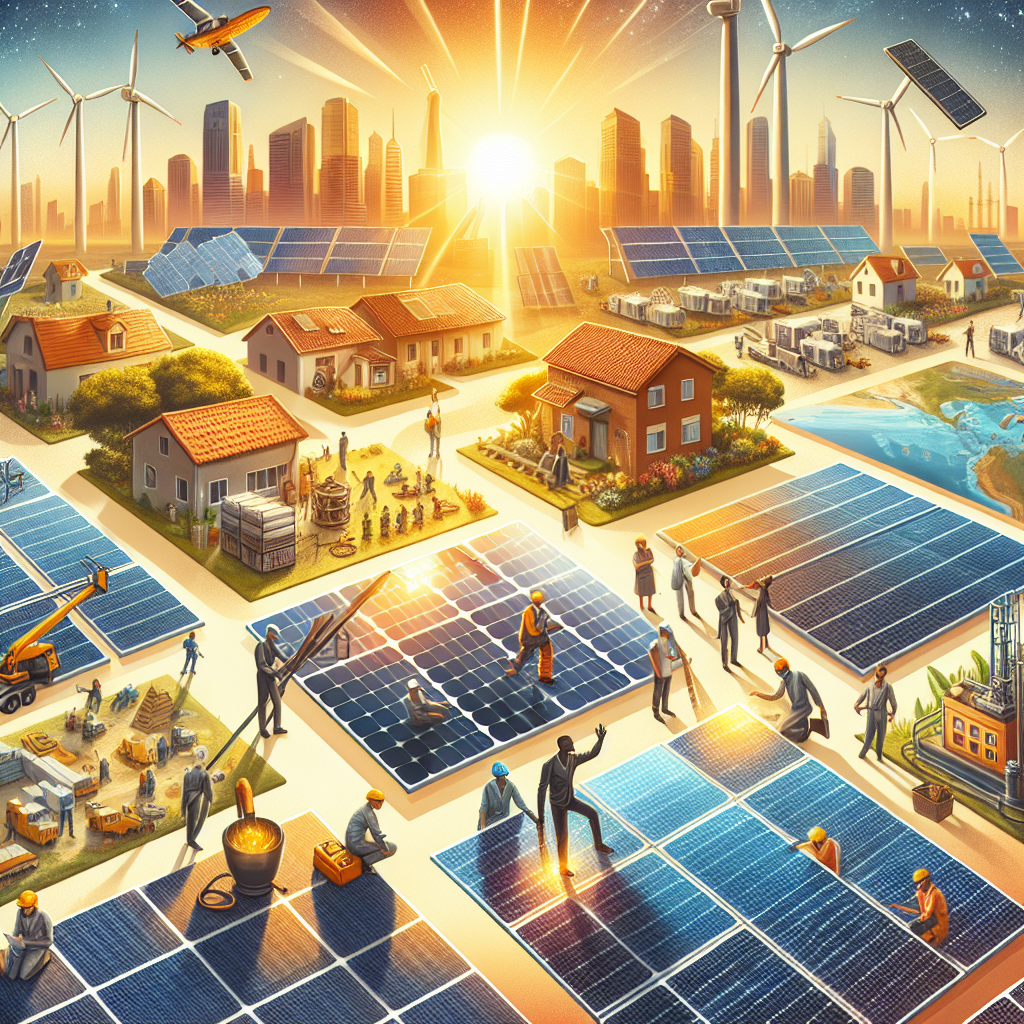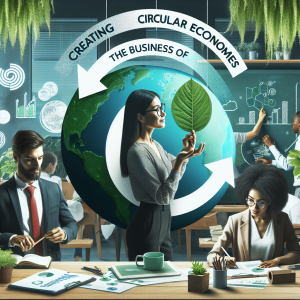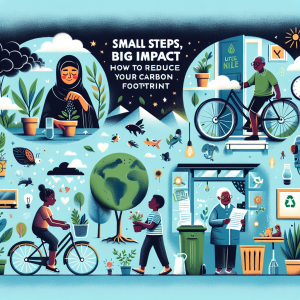Going Off-Grid: How Solar Energy is Empowering Communities Worldwide
In recent years, the concept of going off-grid has gained significant traction, with solar energy taking center stage as a transformative force for communities around the globe. As countries grapple with the effects of climate change, rising energy costs, and political instability, more people are looking toward renewable energy solutions that promise independence and sustainability. This article explores how solar energy empowers communities, enhances their resilience, and fosters economic growth.
Understanding Off-Grid Living
Off-grid living refers to a lifestyle that operates independently from public utility services, particularly electric grids. To achieve this, individuals and communities harness renewable energy sources—most notably solar power—enabling them to generate their own electricity for homes, businesses, and community services. This independence can alleviate vulnerability to fluctuating energy prices, reduce reliance on fossil fuels, and enhance overall sustainability.
The Solar Revolution
Solar energy has emerged as a frontrunner in renewable technologies due to its accessibility and adaptability. Countries with abundant sunlight, such as those in Africa, South Asia, and parts of Latin America, have embraced solar photovoltaic (PV) systems to electrify rural and remote areas long neglected by conventional energy providers. By harnessing this abundant resource, communities are lighting up schools, homes, health clinics, and businesses, bringing much-needed services and opportunities to previously marginalized populations.
Empowering Communities
-
- Economic Advantages
The economic benefits of solar energy are significant. By reducing or eliminating electricity bills, families have more disposable income to spend on other necessities, including education and healthcare. Furthermore, the installation and maintenance of solar systems create job opportunities in communities, ranging from technical roles to sales and administration.
- Economic Advantages
-
- Healthcare Access
In many off-grid regions, healthcare facilities struggle with unreliable electricity, jeopardizing the storage of vaccines and the operation of essential medical equipment. Solar energy can provide a reliable power source to health clinics, enabling them to function more effectively and enhancing the well-being of local populations.
- Healthcare Access
-
- Education and Youth Engagement
Education is another vital area benefiting from solar energy. Schools powered by solar systems can provide consistent lighting, enabling longer study hours and better learning conditions. Additionally, youth engagement initiatives often accompany solar projects, teaching skills related to renewable energy and fostering a generation equipped to address future energy challenges.
- Education and Youth Engagement
-
- Mitigating Climate Change
Relying on solar energy reduces dependence on fossil fuels, thus decreasing greenhouse gas emissions. For communities on the front lines of climate change, such as island nations or arid regions, solar energy represents a path toward sustainability and resilience, allowing them to adapt to shifting weather patterns and environmental challenges.
- Mitigating Climate Change
-
- Community Resilience
Off-grid solar systems often include battery storage, allowing communities to store energy for use during periods of low sunlight. This energy independence enhances resilience against natural disasters or geopolitical instability that might disrupt traditional energy supply chains. Communities can maintain critical functions during emergencies, from powering essential services to enabling communication systems.
- Community Resilience
Global Initiatives and Success Stories
Various NGOs, governments, and private sector organizations are driving solar adoption across the globe. For example:
-
- Barefoot College in India trains women, particularly grandmothers, to become solar engineers, not only bringing electricity to their villages but also empowering women and enhancing gender equality.
- Barefoot College in India trains women, particularly grandmothers, to become solar engineers, not only bringing electricity to their villages but also empowering women and enhancing gender equality.
-
- Solar Sister, operating in Africa, blends solar energy with social entrepreneurship, enabling women to distribute solar products and earn a sustainable income while providing clean energy solutions to their communities.
- Solar Sister, operating in Africa, blends solar energy with social entrepreneurship, enabling women to distribute solar products and earn a sustainable income while providing clean energy solutions to their communities.
-
- The UN’s Sustainable Development Goals emphasize the role of affordable and clean energy in mitigating poverty and promoting sustainable development, with solar energy at the forefront of these initiatives.
- The UN’s Sustainable Development Goals emphasize the role of affordable and clean energy in mitigating poverty and promoting sustainable development, with solar energy at the forefront of these initiatives.
Challenges Ahead
While the prospects for solar energy and off-grid living are promising, several challenges remain. Initial capital costs for solar systems can be prohibitive for low-income communities. Moreover, regulatory hurdles and lack of infrastructural support can hinder widespread adoption. To overcome these barriers, innovative financing models, such as pay-as-you-go systems, and supportive government policies are essential to facilitate access for all.
Conclusion
The shift toward off-grid solar energy is not just a technological advancement; it represents a fundamental transformation in how communities can empower themselves. By harnessing the sun’s energy, individuals and communities are becoming self-reliant, improving their quality of life, and contributing to a more sustainable and equitable world. As innovation continues and awareness grows, the global adoption of solar energy holds the promise of a brighter future, illuminating pathways toward resilience and prosperity for all.




